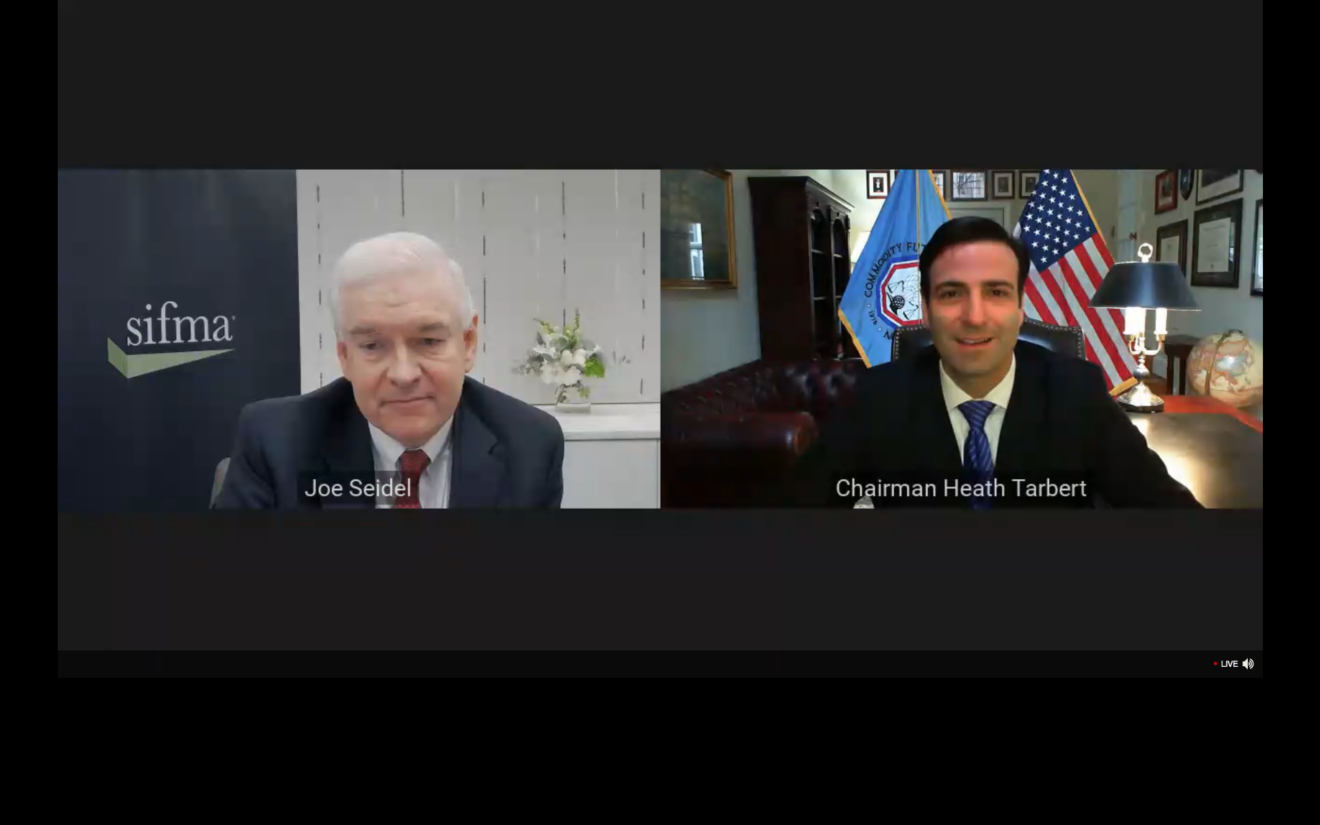The transition away from Libor has been a big task for financial authorities to confront, but its success now hinges on the efforts of market participants, the top US derivatives regulator says.
Heath Tarbert, chairman of the Commodity Futures Trading Commission, told SIFMA’s Annual Meeting that the agency has worked to prepare derivatives markets for the phasing out of Libor in various ways and is now looking to market participants to begin the transition.
“I think basically on the CFTC side, our job is done, and we’re relying on you, the market participants, to go ahead, adopt those protocols and be ready to make the switch,” Tarbert said.
Tarbert said the monumental effort has relied heavily on strong coordination between authorities and industry groups, and praised the work of the Alternative Reference Rates Committee — the Federal Reserve-backed panel comprised of private-market participants which was tasked with ensuring a successful transition of US dollar products to the Secured Overnight Financing Rate.
“This is one example where I really think it was really clear to us two years ago that we needed a public-private partnership effectively in regulation,” Tarbert said. “We needed the public sector to do everything it could and the private sector to game that out as well, and so the leadership from the ARRC has been phenomenal in that regard.”
Tarbert’s comments came on the heels of the “big bang” discounting switch at CME and LCH on Oct. 16-19, in which SOFR was used to value swaps in place of Libor or the effective federal funds rate.
He said moving to SOFR has proven easier in markets for futures and other exchange-traded derivatives, where the CFTC has been able to coordinate with exchanges on the transition.
“The swap side, the non-cleared side, is a little more tricky, but there we’ve been working closely with ISDA and other bodies, all under the great leadership of the ARRC, to get those protocols ready,” Tarbert said.
Tarbert strongly encouraged swaps participants to get ISDA’s protocols in place as early as possible, which would allow contracts to convert to an alternative reference rate in the event Libor ceases entirely or fails to be representative.
The CFTC has also issued a series of no-action relief letters in an effort to assure firms “there will be no regulatory cost for switching from Libor to SOFR,” Tarbert said, noting that transitioned contracts “won’t be counted as a new swap, won’t be subject to additional clearing or other requirements.”
